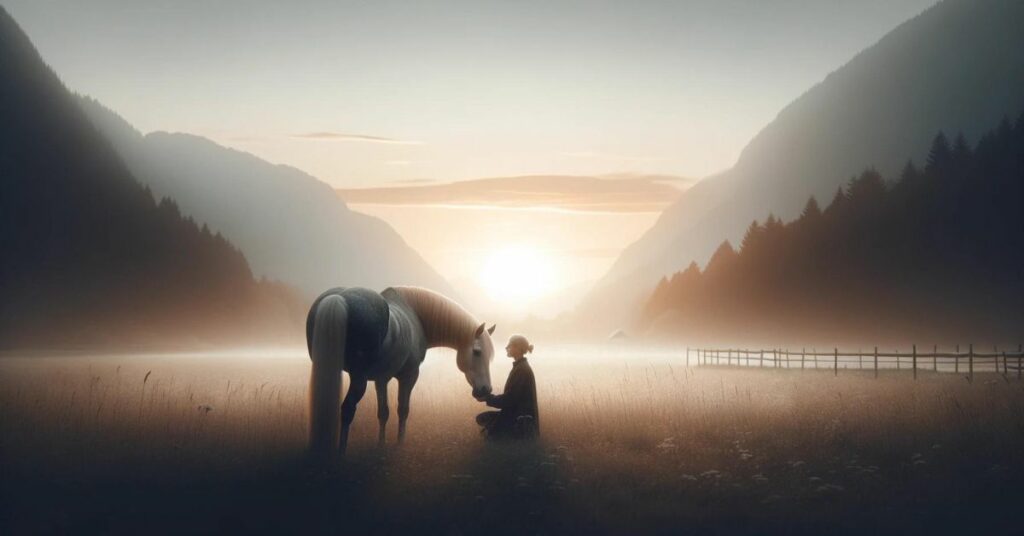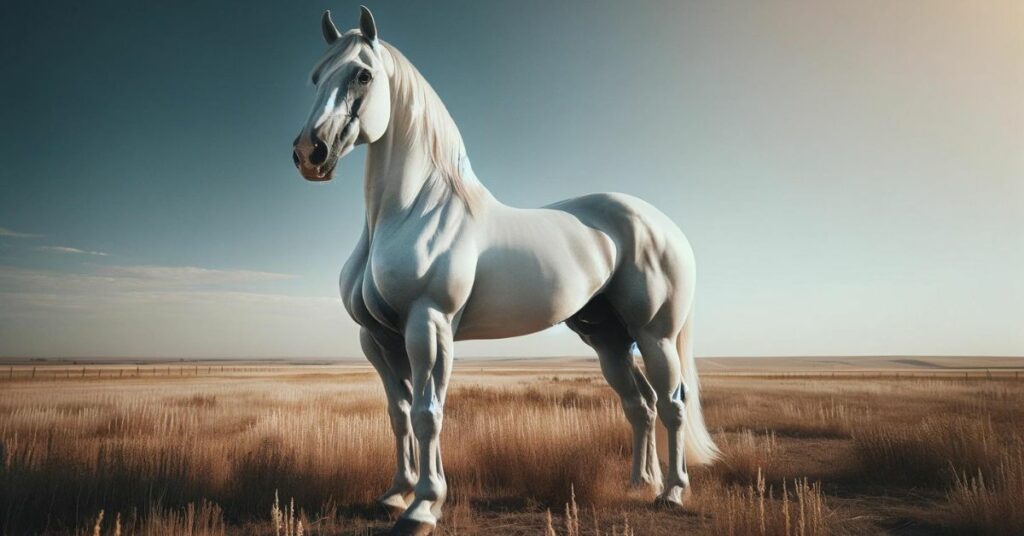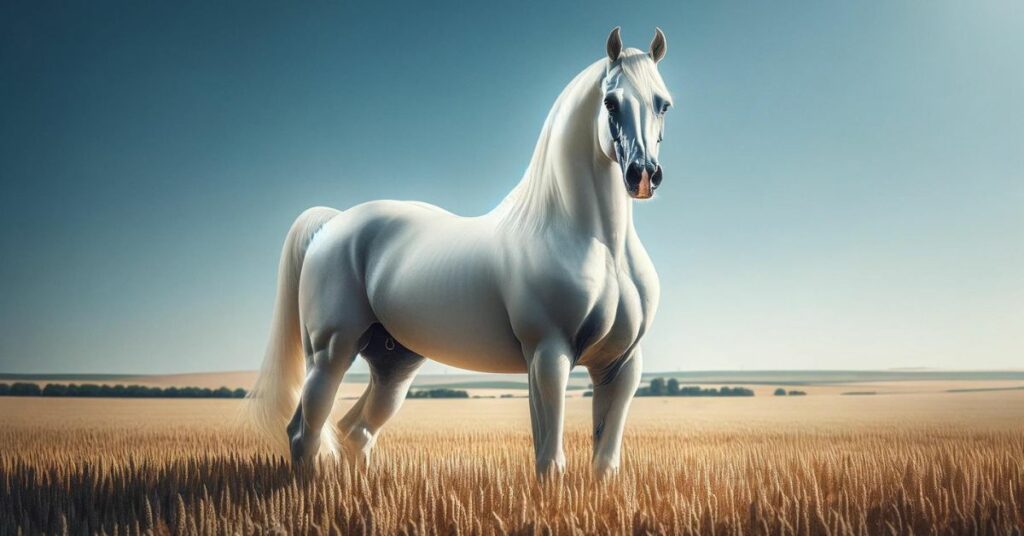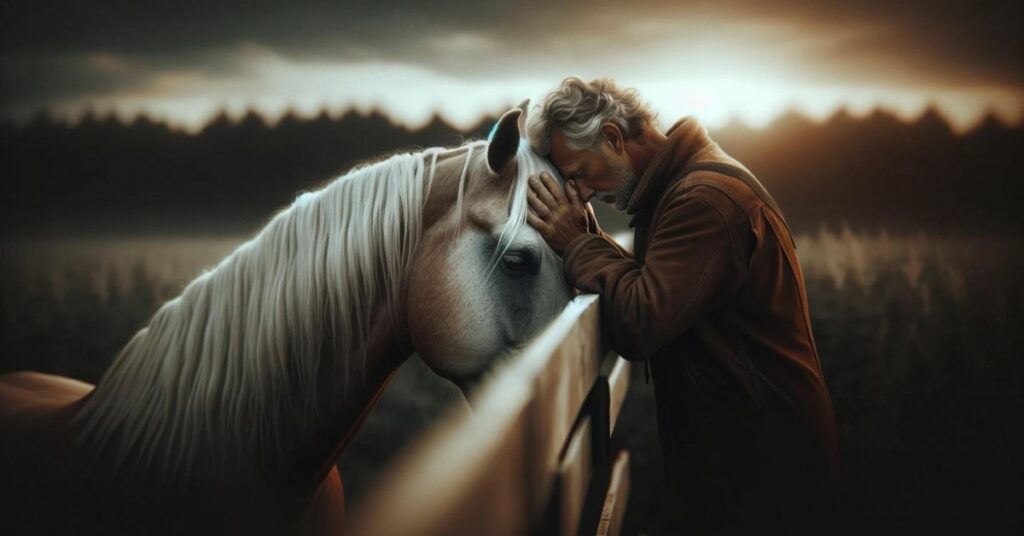Introduction to Horse Lifespan
Horses have long captivated the human imagination, embodying freedom, strength, and beauty. Their companionship and service have been invaluable across various cultures and time periods. Understanding the lifespan of these magnificent creatures is crucial for anyone involved in their care, from the seasoned equestrian to the first-time horse owner. A horse’s life expectancy can vary significantly, influenced by factors such as breed, lifestyle, and the quality of care they receive. This introductory section aims to set the stage for a deeper exploration into what affects a horse’s lifespan and how we can ensure their time with us is both long and fulfilling. Join us as we embark on this journey to understand the lifespan of horses, from the joyous moment of birth to their dignified twilight years, and discover how to enhance their well-being at every stage.
Factors Influencing Horse Lifespan
The longevity of horses is not a matter of chance but is significantly influenced by several interconnected factors. Understanding these can help horse owners and caregivers provide the best possible environment and care to extend their horses’ lives.
Genetics and Breed Specific Lifespan
Genetic makeup plays a pivotal role in determining the lifespan of a horse. Some breeds are known for their longevity, such as Arabians, which often live into their 30s. Conversely, larger breeds like Clydesdales and Shires may have shorter lifespans due to the physical demands placed on their larger bodies. Recognizing the breed-specific lifespan expectations is essential for tailored care and management strategies.
Quality of Care
The level of care a horse receives throughout its life is a major determinant of its lifespan. Regular veterinary check-ups, vaccinations, and dental care are crucial for preventing and managing health issues. Nutritional management, including proper feeding practices, can prevent obesity and related health problems, further influencing a horse’s longevity.
Lifestyle and Activity
A horse’s lifestyle, including its level of activity, living conditions, and daily care routines, significantly impacts its health and lifespan. Regular exercise is beneficial for maintaining a healthy weight and supporting cardiovascular health, while adequate shelter and a safe, comfortable living environment can prevent injuries and stress-related illnesses.
Similarly, the health and lifespan of animals like cows are also influenced by factors such as weight and lifestyle. To understand the significance of these factors further, we invite you to read our detailed guide on the average weight of cows and its impact on their wellbeing.
By addressing these key factors, horse owners and caregivers can positively influence the health and longevity of their horses, ensuring they lead fulfilling lives as companions, athletes, or working animals. The subsequent sections will delve deeper into the life stages of horses and how care needs evolve over time, guiding readers towards best practices for each phase of their horse’s life.
The Life Stages of a Horse
Understanding the distinct stages of a horse’s life is essential for providing appropriate care that caters to their changing needs. Each stage—from foalhood to the golden years—presents unique challenges and milestones.
Foal to Yearling: The Early Years
The journey begins with the birth of a foal, marking the start of a life full of potential. During this critical period, ensuring proper nutrition, early socialization, and gentle handling is paramount. These foundational months set the stage for physical and behavioral development. Key milestones include weaning, which typically occurs between four to six months of age, followed by steady growth as the horse approaches its yearling phase.
Adolescence to Adulthood: Coming into Their Own
As horses transition from yearlings to fully grown adults around the age of four or five, their training and education become more intensive. This stage is crucial for developing discipline, strength, and the skills necessary for their future roles, whether in sport, work, or companionship. Proper exercise, ongoing socialization, and consistent training methodologies are vital during this phase to ensure the horse matures into a well-adjusted adult.
Senior Horses: Golden Years
A horse is generally considered senior around the age of 20, although this can vary widely depending on the individual. This life stage requires a shift in care focus, with increased attention to dietary adjustments, health monitoring, and management of chronic conditions. Recognizing the signs of aging and adapting the care regime accordingly can significantly enhance the quality of life for senior horses, allowing them to enjoy their twilight years in comfort and dignity.
By closely observing and adapting to the needs of horses through each of these life stages, owners and caregivers can ensure their equine companions lead fulfilling, healthy lives.
Enhancing Horse Lifespan: Best Practices
To ensure horses not only reach but thrive into their senior years, owners must adopt best practices in nutrition, healthcare, and exercise. Tailoring these aspects to each life stage promotes longevity and enhances quality of life.
Nutrition and Diet
A balanced diet is crucial throughout a horse’s life, adapting to their changing nutritional needs. Young, growing horses require a diet rich in protein for muscle development, while adults need balanced energy for maintenance and activity. Seniors might need diets that are easier to digest and higher in certain nutrients. Regular access to fresh water and forage encourages natural grazing behavior, essential for digestive health.
Regular Veterinary Care
Preventative healthcare plays a significant role in extending a horse’s life. Routine vaccinations, deworming, and dental care prevent disease and discomfort. Early detection of health issues through regular check-ups can significantly impact a horse’s ability to recover and maintain a good quality of life.
Exercise and Training
Consistent, appropriate exercise keeps horses physically and mentally fit. It prevents obesity, improves cardiovascular health, and reduces the risk of many age-related issues. Training should be adjusted to the horse’s age, condition, and capability, ensuring activities are stimulating but not overly strenuous.
Adhering to these best practices in care not only prolongs the life of horses but ensures their years are marked by vitality and joy. As we move to the next section, we’ll explore the signs of aging in horses and how to adapt care practices to meet the needs of senior equines effectively.
Understanding Horse Aging
As horses enter their senior years, their care needs become more nuanced, requiring a deeper understanding of the aging process to ensure their well-being.
Horse Years to Human Years
Translating horse years to human years can provide a rough estimate of their age in a context more familiar to us. While the comparison isn’t exact, it helps in understanding the stage of life your horse might be in relative to human aging, aiding in adjusting care and expectations appropriately.
Signs of Aging in Horses
Recognizing the signs of aging in horses is critical for adapting their care regime. These signs may include a decrease in body condition, dental issues, graying of the muzzle, and a decline in energy levels. Senior horses may also be more prone to health conditions such as arthritis or vision impairment. Understanding these signs enables owners and caregivers to make necessary adjustments in diet, exercise, and healthcare, contributing to a comfortable and dignified aging process.
Caring for an aging horse involves a compassionate approach, recognizing their changing needs and limitations. The next section will delve into common health issues that can impact the lifespan of horses and how preventative measures and timely interventions can mitigate these challenges.
Common Health Issues and Lifespan
As horses age, they become susceptible to a range of health issues that can affect their quality of life and longevity. Awareness and proactive management of these conditions are key to extending a horse’s healthy years.
- Colic: A common digestive issue that can range from mild discomfort to life-threatening emergencies. Regular health checks, proper diet, and management practices can reduce the risk.
- Arthritis: Often affecting older horses, leading to joint pain and mobility issues. Management includes weight control, appropriate exercise, and, in some cases, medication.
- Heaves: A respiratory condition similar to asthma in humans. Minimizing dust in the environment and providing clean air can help manage this condition.
Preventative care, including regular veterinary check-ups, appropriate nutrition, and maintaining an active lifestyle, can significantly impact a horse’s ability to enjoy a long and healthy life. The final part of our series will touch on the emotional aspects of caring for aging horses, preparing for the inevitable, and ensuring their final years are comfortable and dignified.
The Emotional Bond: Preparing for the Inevitable
Navigating the final years of a horse’s life is as much an emotional journey as it is a practical one. Building a deep bond with horses throughout their lives, owners face the challenging decision of ensuring quality of life as their beloved companions age. Recognizing when it is time to say goodbye, considering humane euthanasia, and dealing with grief are pivotal aspects of responsible horse ownership. Planning for end-of-life care, understanding the options for aftercare, and seeking support from the community can provide comfort during these difficult times. Celebrating the life and legacy of a horse, reflecting on the joy and lessons they’ve brought into our lives, is a beautiful way to honor their memory.
Conclusion: Celebrating a Life Well Lived
In wrapping up our exploration of the horse’s journey from birth through to their senior years, we’ve covered the critical aspects that influence their lifespan, care needs, and the deep bonds we form with them. Proper care, understanding the aging process, and preparing for the end are all part of responsible horse ownership. Cherishing every moment spent with these magnificent creatures and ensuring their lives are as fulfilling and comfortable as possible is the greatest tribute we can offer. Let this guide serve as a reminder of the joy and responsibility that comes with sharing our lives with horses.
FAQs
To further enhance understanding and provide additional insights into horse care and lifespan, here are answers to some frequently asked questions:
- What can I do to ensure my horse lives a long and healthy life?
Focus on proper nutrition, regular veterinary care, appropriate exercise, and a safe, enriching environment.
- How can I tell if my horse is aging well?
Look for signs of good health such as a glossy coat, good body condition, and active engagement in their surroundings.
- Are there special considerations for feeding a senior horse?
Yes, senior horses may require diets easier to chew and digest, possibly supplemented to support joint health and manage weight.
- When is the right time to consider euthanasia for my horse?
This difficult decision should be based on quality of life assessments, in consultation with your veterinarian.
For those fascinated by the wonders of animal life, our exploration doesn’t stop here. Dive into the mysterious world of aquatic life with our next feature on how eels reproduce. Uncover the secrets of their unique reproductive journey at Discover How Eels Reproduce.
![How Long Do Horses Live? Duration & Care [Guide] Healthy brown horse with herd in green pasture.](https://alohado.com/wp-content/uploads/2024/03/brown-horse-friends-field-1024x536.jpg)




